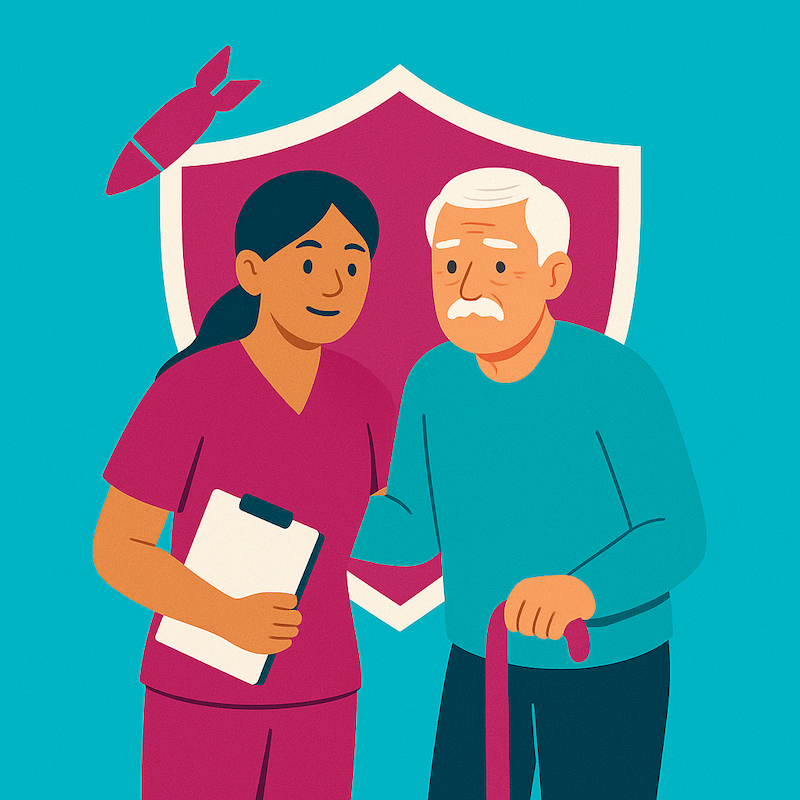Home Safety Tips in Caring for the Elderly
iSavta | 30.06.2020
Do you feel like you always have to watch your elderly family member or patient because he/she might do or use something that can endanger him/her? How do you feel? Most of the time, this gives additional stress to the caregiver and can lead to exhaustion - compromising future efficient care. An environment that is safe for the patient will not only prevent dangers that could affect them due to physical factors, it also reduces our stress levels.
Even if our patients are just at the comforts of their own homes, and it seems to be a familiar place to them, it could still be dangerous because of the high risk of dementia in the aging population. Home Modifications are therefore needed to keep their environments free from risk. Here are some tips to keep the home safe:

Throw Expired Food
Neglecting an excess dish that’s been on the fridge for a long time, or even bread on the kitchen counter, wouldn’t be a very good idea. Though it may have been refrigerated, there are still chances that bacteria could have grown that could cause illness. Bread is often overlooked and may already be past their expiry dates too and could have already developed molds. Regularly throwing expired food can lessen the chances of our elderly consuming food that may be potentially unsafe.
Remove Potentially Harmful Objects
Our houses are full of objects that can possibly cause harm to our elderly loved ones or patients. Knives, scissors, weapons, chemicals and medications are some of the things that we need to remove or keep inside cabinets and locked using child safety locks if there are no built-in locks. This avoids any future possibility of our elderly loved ones wrongfully using them that could jeopardize their well-being.
Cautious Restriction with Home Appliances
Ovens and stoves are some of the appliances that pose a possible danger both for the patient and the caregiver. Even if our elderly loved ones used to utilize them perfectly in the past, now that they are becoming older, it will be safer if we don’t allow them to use them anymore. Since they are older, it is also difficult to impose on them our rules, instead, just remove the knobs of the oven and stove or turn off the gas, this way, it will be hard for them to operate them.
Small appliances that are not too dangerous to use, such as bread toasters can be retained, provided that step-by-step instruction signs on how to use such appliances are provided. Unplug and remove from sight all other appliances too dangerous to use.
Prepare Healthy Snacks in Advance
Many times our elderly loved ones try to go to the kitchen and use knives or the stove because they are hungry. Preparing healthy finger food snacks such as grapes and other sliced fruits in the fridge can be a good idea. Once they see an alternative that could already fill their stomachs, they’ll most likely forget about having to cook so they could grab a snack.
Dealing with the elderly takes effort and creativity in solving problems. The process of aging puts an individual at high risk for dementia which affects the memory. Thus, the inability to have sound judgement diminishes making the home a potentially dangerous place. However, when we modify their environment to make it safe, our efforts would be rewarded.
Making the house a safe place for the elderly will warrant it to be a home. Poison control or emergency numbers that are easily visible could also use some help in managing this predicament. We hope you and your elderly loved ones continue to enjoy being sheltered against harm and even develop deeper relationships in this season of your lives.











